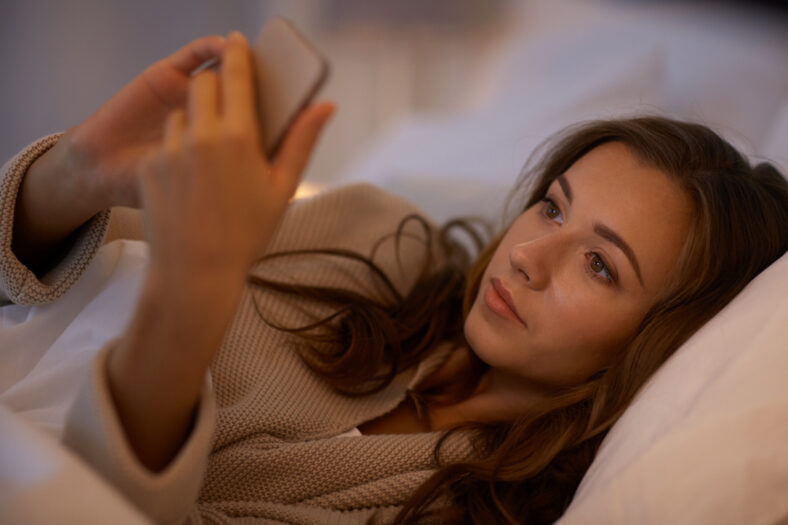Gen Z May Be The Most Connected Generation, But Loneliness Is Haunting Their Nights

Gen Z may be the most connected generation of all time, but that doesn’t mean they’re actually feeling closer than ever to people.
A new study shows that loneliness is haunting their nights, keeping them tossing and turning instead of getting some much-needed rest.
Psychologists from Oregon State University (OSU) analyzed 1,000 undergraduate students and found that 35 percent of them felt lonely. These students were twice as likely to report insomnia symptoms than those who did not feel lonely.
“Insomnia is detrimental to the health of college students,” said Jessee Dietch, a co-author of the study and a psychologist, sleep medicine practitioner, and assistant professor of psychological science.
“It has been consistently associated with increased stress, anxiety, and mood disturbance, as well as decreased academic performance.”
Among young adults in higher education, insomnia and loneliness are at epidemic levels. Loneliness can disrupt sleep, leading to a higher sensitivity to stress, so they are more likely to lie awake at night.
Social isolation may bring about a lack of safety and security, which can make someone more vigilant to threats and interrupt sleep. Loneliness is also associated with depression and rumination, both things that disrupt sleep.
According to the researchers, the relationship between sleep and loneliness is bidirectional. This means poor sleep can also cause loneliness and social withdrawal.
Additionally, the team looked at screen time. They uncovered a link between sleep issues and getting more than eight hours of screen time per day, but loneliness appeared to play a stronger role in insomnia than screen time.

Sign up for Chip Chick’s newsletter and get stories like this delivered to your inbox.
Reducing screen time could help improve sleep, but that should not be the sole focus. Creating and maintaining positive social connections may be beneficial as well, although more research is needed to determine its effectiveness.
For students who do not feel lonely, spending more time in front of a screen could elevate the risk of sleep problems.
However, lonely students were more likely to experience insomnia no matter how much time they spent looking at screens.
“More screen time does appear to be associated with greater insomnia symptoms, but it seems that this is only the case for individuals who are not very lonely,” said John Sy, a graduate student in the School of Psychological Science at OSU. “For lonelier adults, their insomnia symptoms were elevated regardless of the amount of screen time.”
Per the Centers for Disease Control and Prevention (CDC), about one in three adults in the United States report feeling lonely.
Loneliness can even increase the risk of diseases like stroke, heart disease, type 2 diabetes, anxiety, depression, suicidal tendencies, self-harm, and dementia.
College students are particularly at risk of experiencing sleep problems. Their levels of loneliness seem to be higher than other adult age groups. Plus, their screen time is higher.
Despite their digital-savvy lifestyles, they have a lack of deep, meaningful relationships, impacting their sleep and mental health. Cultivating real-life bonds could be a solution to this loneliness epidemic.
The study was published in the Journal of American College Health.
More About:News





